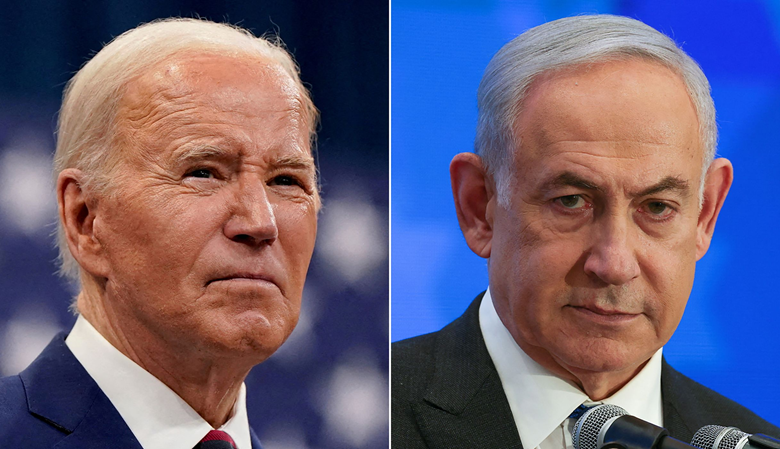Biden Urges Netanyahu to Accept Cease-Fire Amid Rising Tensions and Regional Turmoil

News Mania Desk/Agnibeena Ghosh/2nd August 2024
In a candid and direct conversation, US President Joe Biden pressed Israeli Prime Minister Benjamin Netanyahu to agree to a cease-fire with Hamas, highlighting growing frustrations in Washington over the ongoing conflict in Gaza. The call, which took place on Thursday, underscored the deteriorating relationship between the two leaders as the war, now approaching its tenth month, continues to escalate.
Biden’s approach was notably blunt, urging Netanyahu to act on the available opportunity for a cease-fire. “We have the basis for a cease-fire,” Biden stated, emphasizing the urgency of moving forward. The recent assassination of Ismail Haniyeh, the political leader of Hamas, has further complicated the situation. Iran and Hamas have blamed Israel for Haniyeh’s death, although Israel has neither confirmed nor denied involvement. This incident has exacerbated tensions in an already volatile region.
President Biden is aiming to leverage his final months in office to bring an end to the conflict, which has generated significant political discord within the United States. Despite substantial military aid provided by his administration, Biden has faced challenges in swaying Netanyahu’s stance. Netanyahu, leading Israel’s most nationalist government in history, insists that the military campaign must continue until Hamas is fully dismantled. While Israel claims to have significantly weakened Hamas, the militant group continues to regroup, and Israeli officials have suggested that a complete defeat of Hamas may not be achievable before the year’s end.
The Israeli Prime Minister has also rebutted allegations from various international sources, including American and Arab officials, that Israel has not sufficiently addressed humanitarian needs in Gaza. The ongoing truce discussions, mediated by Qatar, the US, and Egypt, have faced numerous hurdles. The proposed plan involves an initial six-week cease-fire, the release of some hostages, and the potential release of Palestinian prisoners in Israeli jails. Subsequent stages aim to secure further hostage releases and possibly a permanent end to hostilities.
However, Israel remains cautious, wary of any truce that might restrict its capacity to resume military action if necessary. The situation has been further complicated by recent developments, including the targeted killing of Fuad Shukr, a senior Hezbollah commander, by Israeli forces in Beirut. This strike was reportedly in retaliation for a rocket attack that resulted in the deaths of 12 children in the Israeli-controlled Golan Heights.
In response to these escalating tensions, Iran and Hezbollah have pledged revenge against Israel, with Tehran exploring various retaliatory measures. The death of Haniyeh and the broader regional conflict have also affected global markets, with oil prices rising and Israel’s shekel facing its worst weekly performance in over four years.
Amid this turmoil, President Biden, accompanied by Vice President Kamala Harris, has committed to bolstering Israel’s defense capabilities and emphasized the importance of de-escalating regional tensions. The US administration has used intermediaries to caution Iran, Hezbollah, and the Houthis in Yemen against further escalation. The conflict began on October 7, when Hamas launched a major attack on southern Israel, resulting in 1,200 deaths and 250 hostages taken. In retaliation, Israel’s extensive offensive in Gaza has led to approximately 40,000 Palestinian casualties, according to figures from the Hamas-run health ministry. Hamas and Hezbollah are part of Iran’s so-called “Axis of Resistance,” which is characterized by its opposition to Israel and the US.






